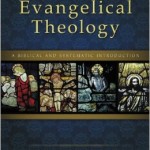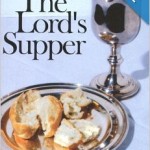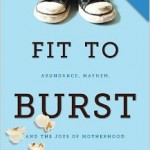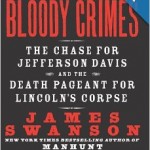I love to read. By God’s grace I am a pretty fast reader; I usually read a couple books each week. I find it helpful to summarize my thoughts on each book and I offer those thoughts in hopes that you will be encouraged to either read or pass over the given title.
 Evangelical Theology: A Biblical and Systematic Theology by Michael Bird. Bird set out to write a “gospel-centered theology for Christians who seek to define themselves principally by the gospel” (21). Whereas Calvin united his theology under the glory of God, Luther under justification by faith, and Barth under the self-disclosure of the Triune God, Bird believes the gospel is the integrating point of Christian theology. “The gospel comprises the beginning point, boundary, and unifying theme for all theology” (45). The book’s strengths and weaknesses flow from the gospel being the penultimate boundary for Christian theology and fellowship. The method is undeniably helpful as no loci of theology is ever far from the gospel announcement. Yet, such a center-bounded approach predictably flattens common areas of divergence as exemplified in Bird’s discussion of God’s fatherhood, eschatology, the extent of Christ’s atonement, church polity, and sacraments. That I felt the center-bounded work falls short of the ideal probably reveals my own convictions on our centered-bounded age.
Evangelical Theology: A Biblical and Systematic Theology by Michael Bird. Bird set out to write a “gospel-centered theology for Christians who seek to define themselves principally by the gospel” (21). Whereas Calvin united his theology under the glory of God, Luther under justification by faith, and Barth under the self-disclosure of the Triune God, Bird believes the gospel is the integrating point of Christian theology. “The gospel comprises the beginning point, boundary, and unifying theme for all theology” (45). The book’s strengths and weaknesses flow from the gospel being the penultimate boundary for Christian theology and fellowship. The method is undeniably helpful as no loci of theology is ever far from the gospel announcement. Yet, such a center-bounded approach predictably flattens common areas of divergence as exemplified in Bird’s discussion of God’s fatherhood, eschatology, the extent of Christ’s atonement, church polity, and sacraments. That I felt the center-bounded work falls short of the ideal probably reveals my own convictions on our centered-bounded age.
 The Lord’s Supper by Thomas Watson. This little book represents a prototypical Puritan view of Matthew 26:26-28. Although neither Watson’s dedication nor the publisher’s preface say so, I bet the book is consists of a couple sermons on Matthew’s recounting of the Supper’s institution. The first three chapters unfold five particulars about the gospel-banquet from Matthew 26: 1) the Author, 2) the Time, 3) the Manner, 4) the Guests, and 5) the Benefits. In time Watson quickly dispatches of the two extremes to be avoided, transubstantiation and memorialism. For those familiar with the various views, Watson advocates for and elaborates on the teachings of Calvin. I found his discussion of the kind of heart necessary to partake of the Supper to be most helpful.
The Lord’s Supper by Thomas Watson. This little book represents a prototypical Puritan view of Matthew 26:26-28. Although neither Watson’s dedication nor the publisher’s preface say so, I bet the book is consists of a couple sermons on Matthew’s recounting of the Supper’s institution. The first three chapters unfold five particulars about the gospel-banquet from Matthew 26: 1) the Author, 2) the Time, 3) the Manner, 4) the Guests, and 5) the Benefits. In time Watson quickly dispatches of the two extremes to be avoided, transubstantiation and memorialism. For those familiar with the various views, Watson advocates for and elaborates on the teachings of Calvin. I found his discussion of the kind of heart necessary to partake of the Supper to be most helpful.
 Fit to Burst: Abundance, Mayhem, and the Joys of Motherhood by Rachel Jankovic. Some might think it strange to read a book written by a woman for other women, but my wife resonates deeply with Jankovic’s perspective on motherhood, so I read in order to better understand and serve her work as a mom. Jankovic is a fabulous writer, which makes perfect sense when you discover she is Doug Wilson’s daughter and Nate Wilson’s sister. Her uncommon wisdom and wit are preeminently displayed in meditations on misplaced “grace” in discipline, the relationship between faithfulness and stress, and the value of cultivating a lively sense of humor in parenting. Fit to Burst is one of the most enjoyable books I’ve read this year.
Fit to Burst: Abundance, Mayhem, and the Joys of Motherhood by Rachel Jankovic. Some might think it strange to read a book written by a woman for other women, but my wife resonates deeply with Jankovic’s perspective on motherhood, so I read in order to better understand and serve her work as a mom. Jankovic is a fabulous writer, which makes perfect sense when you discover she is Doug Wilson’s daughter and Nate Wilson’s sister. Her uncommon wisdom and wit are preeminently displayed in meditations on misplaced “grace” in discipline, the relationship between faithfulness and stress, and the value of cultivating a lively sense of humor in parenting. Fit to Burst is one of the most enjoyable books I’ve read this year.
 Bloody Crimes: The Funeral of Abraham Lincoln and the Chase for Jefferson Davis by James Swanson. A few years ago Swanson published Manhunt: The 12-Day Chase for Lincoln’s Killer and that story of John Wilkes Booth’s demise was a smashing success. Bloody Crimes functions as something like a sequal to Manhunt, answering the question, “What happened next?” The funeral procession for Lincoln is fascinating and the pictures included paint a vivid portrait of a nation in spectacular mourning. Swanson weaves the death pageant alongside the chase for and capture of America’s “lost man,” Confederate President Jefferson David. Although not as suspenseful as Manhunt, the sequel proves Swanson to be a master of narrative fiction.
Bloody Crimes: The Funeral of Abraham Lincoln and the Chase for Jefferson Davis by James Swanson. A few years ago Swanson published Manhunt: The 12-Day Chase for Lincoln’s Killer and that story of John Wilkes Booth’s demise was a smashing success. Bloody Crimes functions as something like a sequal to Manhunt, answering the question, “What happened next?” The funeral procession for Lincoln is fascinating and the pictures included paint a vivid portrait of a nation in spectacular mourning. Swanson weaves the death pageant alongside the chase for and capture of America’s “lost man,” Confederate President Jefferson David. Although not as suspenseful as Manhunt, the sequel proves Swanson to be a master of narrative fiction.
